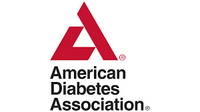Author Interviews, Eli Lilly, Gastrointestinal Disease / 03.11.2023
Crohn’s Disease: Lilly’s Mirikizumab Has Potential to Achieve Remission in Phase 3 Study
MedicalResearch.com Interview with:
Lotus Mallbris, M.D., Ph.D.,
Senior Vice President of Immunology Development
Eli Lilly
MedicalResearch.com: Would you briefly describe the condition of Crohn's disease and who is most susceptible to this disease?
Response: Crohn's disease is a form of inflammatory bowel disease (IBD) that can cause systemic inflammation manifested as abdominal pain, diarrhea, fever and weight loss. It can lead to intestinal obstruction, fibrosis and other complications.
Approximately 900,000 patients in the U.S. and 1 million patients in Europe are currently suffering from Crohn’s disease, and 70% of those have moderate to severe disease. Although the majority of patients are started on conventional therapy such as corticosteroids and immunomodulators, many will unfortunately progress to having moderate to severe disease.
Furthermore, current therapies to treat Crohn’s disease often fail to achieve remission for a majority of patients, and of the patients who do achieve remission, a substantial proportion lose it within the first year.
(more…)








